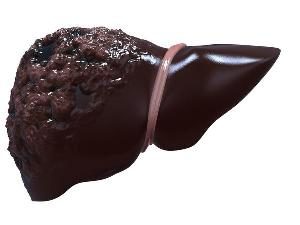
Alkaline Phosphatase is a metabolic enzyme present in your body. It is primarily present in the liver tissue, GI tract, and bone tissue. Physicians often test your blood for levels of Alkaline Phosphatase to assess whether or not you have liver damage.
Function
The function of Alkaline Phosphatase is not entirely known. It is an enzyme present in certain tissues that helps with calcification and hydrolyzing or breaking apart certain fat compounds.
Diagnostic Use
Alkaline Phosphatase is a test that is part of a “Liver Panel” or “Liver Function Tests”. It is often used to diagnose liver failure. It cannot be used in and of itself, however, to make this diagnosis. Your physician will look at other factors to determine whether or not elevated Alkaline Phosphatase translates into a medical diagnosis.
Levels
Normal levels of Alkaline Phosphatase are between 50 and 136 units per Liter.
Elevated Alkaline Phosphatase
Causes
Elevated Alkaline Phosphatase does not always mean you have problems with your liver. Sometimes Alkaline Phosphatase is elevated due to something simple, like eating a fatty meal that day. It can be elevated in children, during pregnancy due to increased metabolism, or in postmenopausal women due to a change in bone metabolism.
In addition to evaluating other symptoms and labs such as elevated SGOT and SGPT (also known as ALT and AST), elevated Alkaline Phosphatase may indicate to your physician a liver problem.
You could have hepatobiliary disease, which is a problem with your bile ducts. This can cause cholestasis, or the inability for your bile acid to flow from your bile ducts into your GI tract. This can be caused by cancer, bile duct stones, drugs or toxins, infectious disease, or alcoholism. Bile acid may accumulate in your bile ducts, thus causing leakage of the alkaline phosphatase enzyme into your serum, or fluid in your blood.
Prognosis and Treatment
Prognosis and Treatment due to elevated alkaline phosphatase is dependent on the diagnosis that caused it. If you have an obstructed bile duct, you may need surgery to resect it so it will work properly again. If this is due to a tumor or cancer, you may also need surgery to remove the tumor, and chemotherapy and/or radiation in order to rid your body of the cancer.
If it is due to drugs or toxins, your physician may try to find what toxins or drugs are causing liver damage, and limit or eliminate them in the future. If you have an infectious disease, you may get antibiotics or antiviral medications. If you have a problem with alcohol, you may need behavioral therapy and treatment in order to prevent further liver damage from alcohol.
Low Alkaline Phosphatase
Causes
Low Alkaline Phosphatase can also indicate that nothing is wrong. In one study, more than 50% of patients did not have a clinically significant disease causing low Alkaline Phosphatase. Some conditions that may cause this lab to be low are malnutrition, certain vitamin and mineral deficiencies, anemia, or hypothyroidism. Diagnosing and treating these conditions in the future will likely correct this lab value.